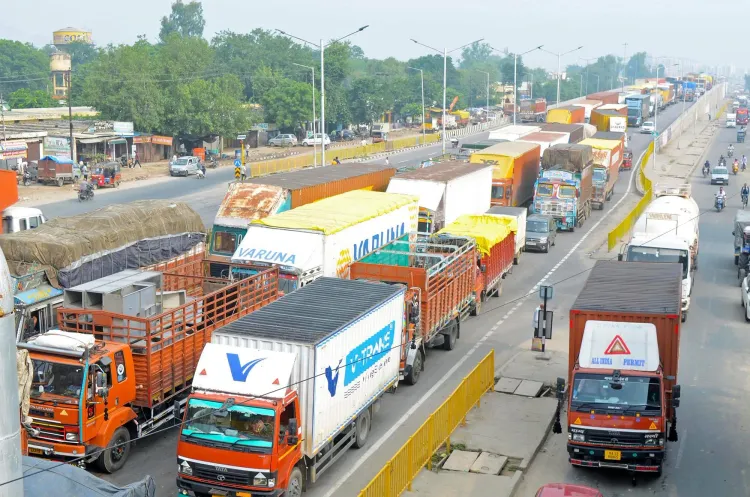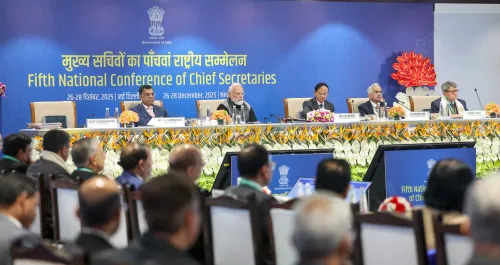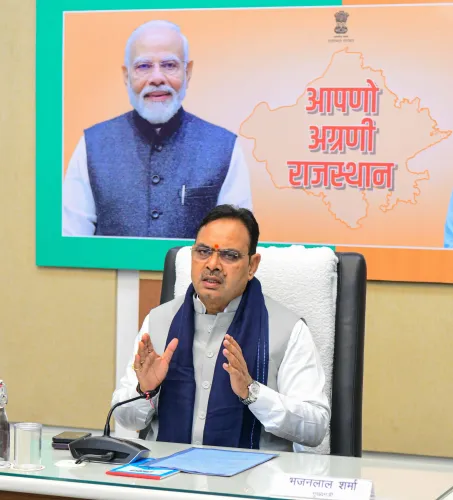How is India Planning to Accelerate Zero-Emission Trucking?

Synopsis
Key Takeaways
- Zero-emission trucking is crucial for reducing pollution.
- Transitioning to Battery Electric Trucks is a primary focus.
- The freight sector contributes significantly to emissions.
- Supportive policies are essential for adoption.
- The report provides insights for policymakers and investors.
New Delhi, July 1 (NationPress) On Tuesday, the government unveiled a report outlining a roadmap for zero-emission trucking (ZET), envisioning a shift towards Battery Electric Trucks that aims to drastically cut down pollution and fuel usage in the nation by the middle of the century.
The report, published by the office of the Principal Scientific Adviser to the government and titled "ZET Adoption in India and its Impact on Emission and Energy", concentrates on the medium and heavy-duty truck sector. It highlights the need for supportive policies to speed up the adoption of zero-emission trucking (ZET) and to fulfill India’s net-zero objectives.
India’s freight industry, primarily powered by medium and heavy-duty trucks, is responsible for almost 70 percent of the country's logistics activities, making it vital for economic development and industrial advancement. However, this sector also plays a substantial role in fuel consumption (about 40 percent) and emissions.
With freight demand on the rise, efforts to shift toward sustainable transport solutions have begun. Considering the current trends in green hydrogen (H2) production costs and limited infrastructure, this report posits that Battery Electric Trucks (BETs) will be the main zero-emission technology (ZET) for medium and heavy-duty trucks for the foreseeable future.
In this context, the comprehensive study offers insights into BET adoption, potential emission reductions, and savings in fuel and electricity under various scenarios that are meticulously researched.
The analysis draws on extensive input from industry experts familiar with the trucking market, its applications, and relevant technologies.
Data from sources such as the Society of Indian Automobile Manufacturers (SIAM), the Vahan portal, the Ministry of Road Transport and Highways (MoRTH), the Ministry of Petroleum & Natural Gas (MoPNG), and the Ministry of Power (MoP), along with interviews with stakeholders from various regions, form the basis of these projections. Discussions with representatives from major OEMs, operators across different use cases, and experts from end-use industries contributed to the report's findings.
"Embracing ZETs is vital for lowering greenhouse gas emissions, enhancing air quality, and boosting energy security. As a nation dedicated to achieving Net Zero by 2070, the electrification of freight transport will be fundamental in creating a cleaner and more efficient logistics framework. The broader adoption of ZET will pave the way for greener transportation in India," stated Principal Scientific Adviser Ajay Kumar Sood.
This report is the culmination of a year-long effort and scenario analysis conducted in collaboration with industry leaders, subject matter experts, and stakeholders. It emphasizes the necessity for targeted early-stage measures, such as increased fiscal incentives, specialized product offerings, and robust charging infrastructures, to enhance market confidence in BETs.
The report aims to equip policymakers, industry stakeholders, and investors with insights that will facilitate a sustainable and economically feasible transition to electric trucking in India.










